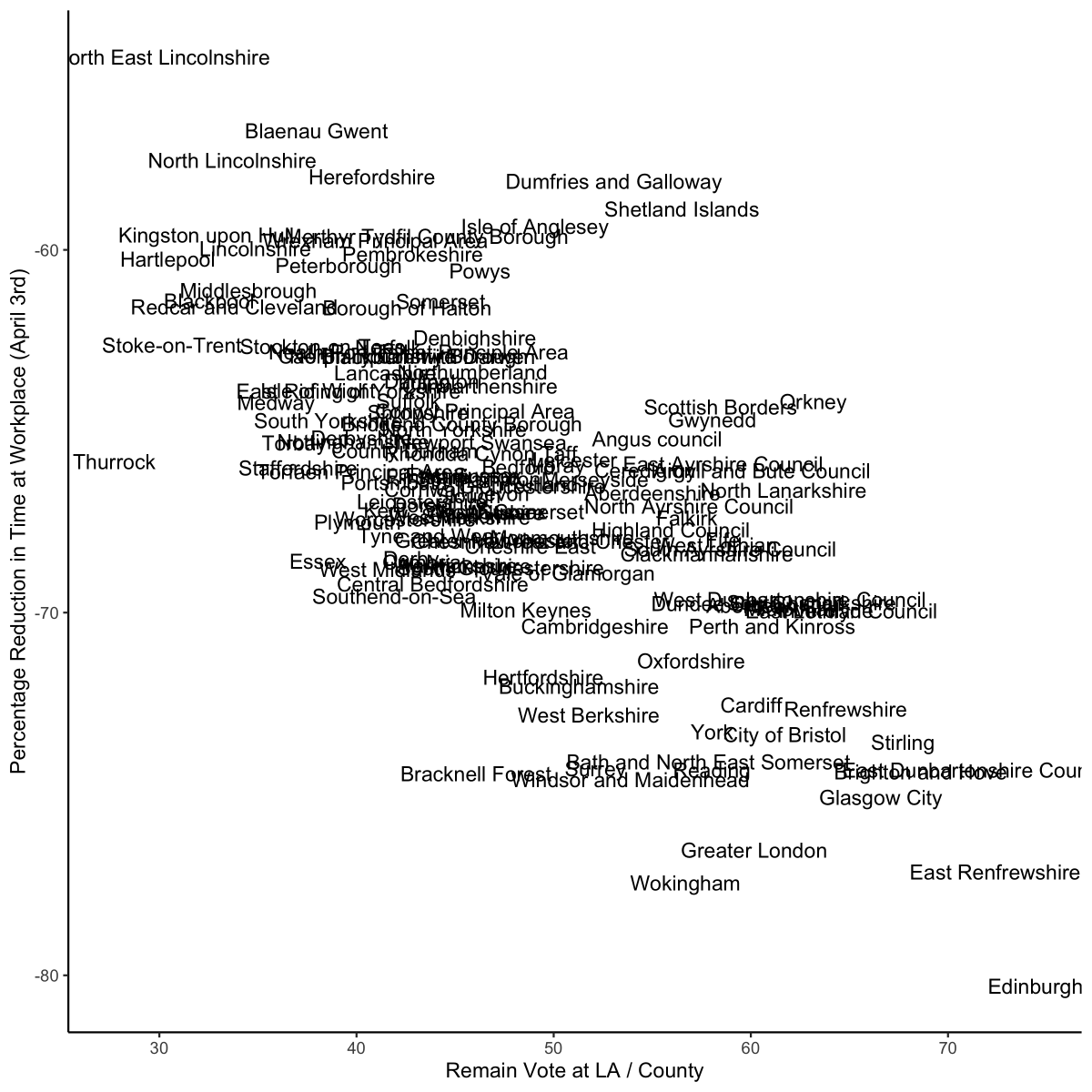
Politics Professor, Nuffield & Oxford, FBA. Host of BBC Radio 4 Rethink. Reith Lecturer. Columnist for Prospect.
3 subscribers
How to get URL link on X (Twitter) App


 In part because Labour entered office sooner than expected and in part because Starmer doesn’t really ‘do’ economics, Labour’s alleged ‘single-minded’ pursuit of growth appears rather more empty-minded. But past PMs and CHXs did have clear principles. 2/n
In part because Labour entered office sooner than expected and in part because Starmer doesn’t really ‘do’ economics, Labour’s alleged ‘single-minded’ pursuit of growth appears rather more empty-minded. But past PMs and CHXs did have clear principles. 2/n
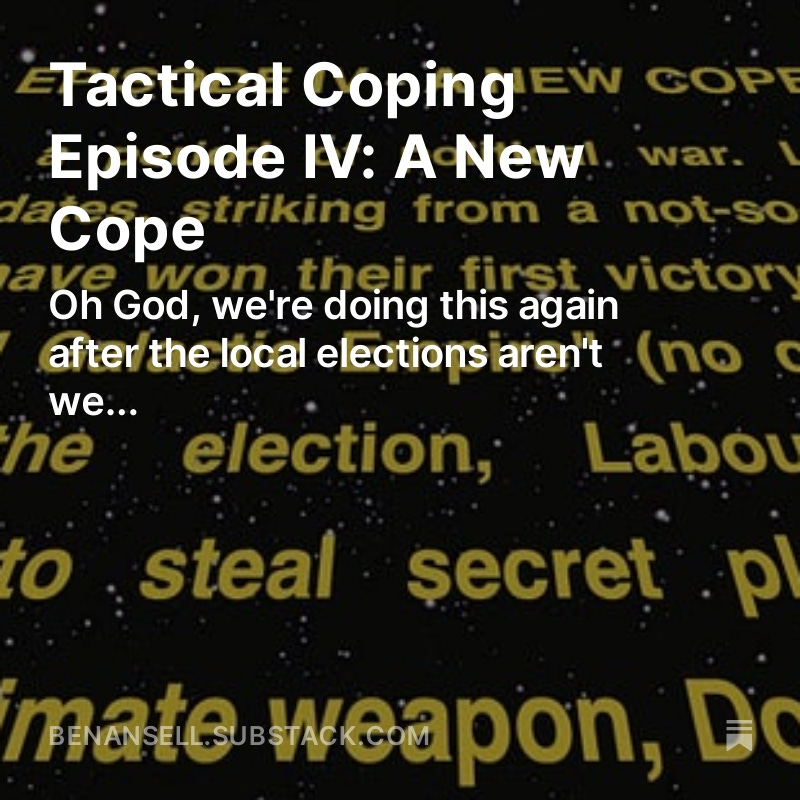
 Last year, after the local elections, we had a similar conversation where the projected national vote (PNV) looked much more favourable to Conservatives than the regular national opinion polls. And I suggested that the reason was tactical voting. I continue to think the same. 2/n
Last year, after the local elections, we had a similar conversation where the projected national vote (PNV) looked much more favourable to Conservatives than the regular national opinion polls. And I suggested that the reason was tactical voting. I continue to think the same. 2/n

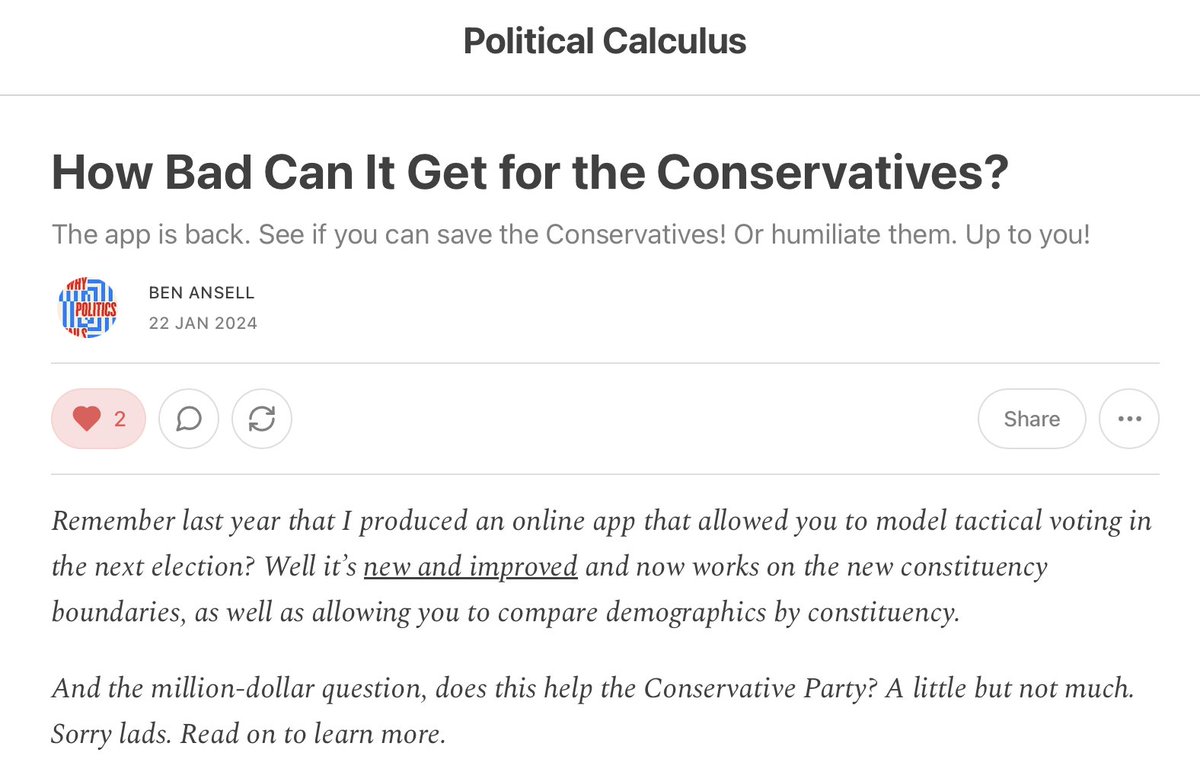
 Last year I created an election predictor tool that allows you to change the level of tactical voting among progressives or Reform/Cons.
Last year I created an election predictor tool that allows you to change the level of tactical voting among progressives or Reform/Cons. 
https://twitter.com/benwansell/status/1633111934399664129Yesterday I had this rather ungainly graph that showed the levels of social authoritarianism in groups of voters by their GE19 vote and current (Oct 22) vote intention. It was a little complex. Just because I could doesn't mean I should've. So I have a simpler plan. 2/n

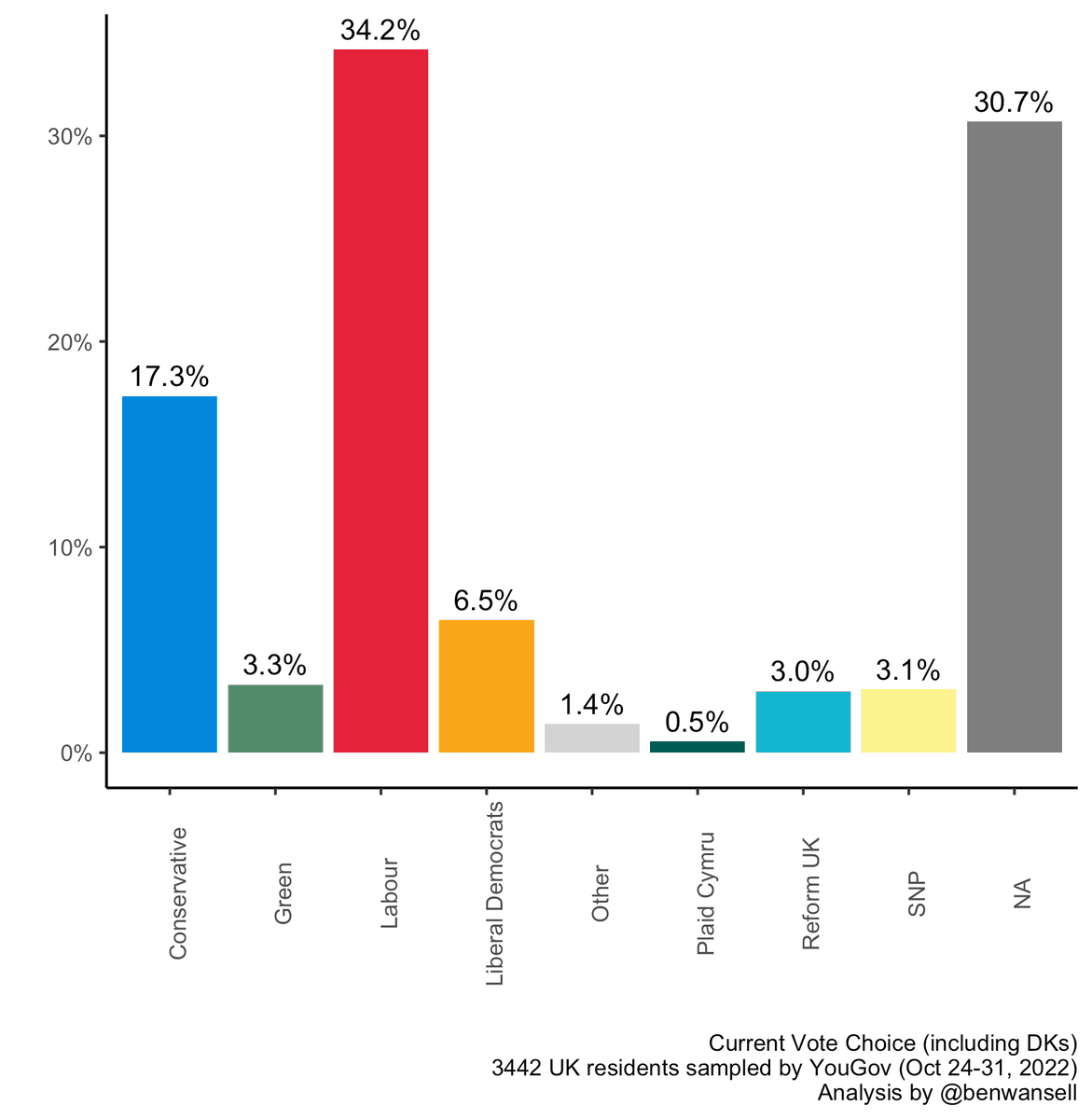



https://twitter.com/benwansell/status/1618989325835993088
 And by party we can see that about 50% of Labour GE19 voters and SNP voters prefer to tax wealth (as opposed to taxing income or being indifferent). Only a quarter of Conservatives feel that way. Libs, Greens, and non-voters in the middle 2/n
And by party we can see that about 50% of Labour GE19 voters and SNP voters prefer to tax wealth (as opposed to taxing income or being indifferent). Only a quarter of Conservatives feel that way. Libs, Greens, and non-voters in the middle 2/n 




https://twitter.com/sundersays/status/1538042247127699456I decided to look at what scholarly measures of democracy look like in the 8 most common origins of refugees to the UK in 2021. That is Iran, Eritrea, Albania, Iraq, Syria, Sudan, Vietnam, and Pakistan (I have switched Afghanistan with Pakistan because no data yet on Taliban) 2/n

https://twitter.com/GoodwinMJ/status/1493728848248115204@jrgingrich and I have a chapter in the forthcoming IFS Deaton Review where we look at this. Here we show the relationship between age and voting Conservative between 1964 & 2019. Left is bivariate (just age), right is adjusting for income, education, homeownership and gender 2/n






https://twitter.com/rowlsmanthorpe/status/1357331196200574978

 Now if we then log flights per capita we can recreate their 'finding' - see below. But I'm somewhat nervous about what that means about the role of outliers. Basically we have too few observations and too much instability of results for me to be comfortable with this. 2/n
Now if we then log flights per capita we can recreate their 'finding' - see below. But I'm somewhat nervous about what that means about the role of outliers. Basically we have too few observations and too much instability of results for me to be comfortable with this. 2/n 
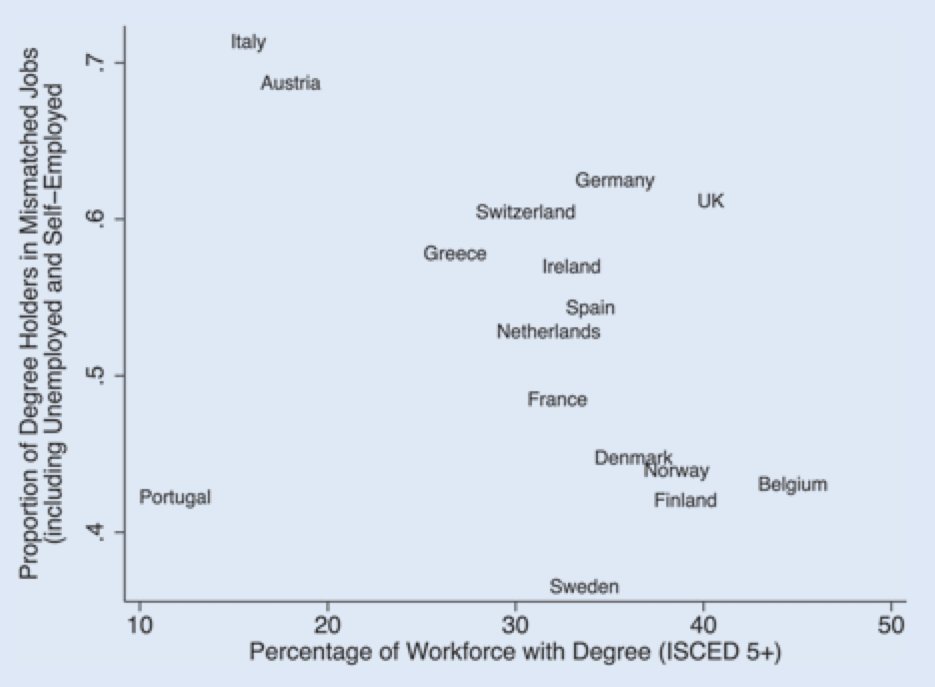

https://twitter.com/benwansell/status/1250169999869829127First off, the Brexit relationship was still there on April 9th (see below) - workplace activity has declined more in 'Remain' areas. The big question is why and I very deliberately was careful about that. Maybe it's because these areas are richer and people work from home? 2/n

